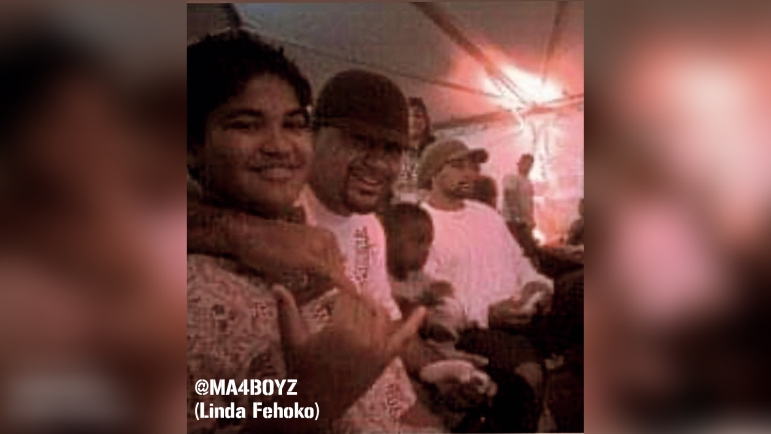Football is family, or so the NFL likes to promote such an idea. The Pittsburgh Steelers certainly don’t shy away from that element—often to the chagrin of some of their fans. But in perhaps no community, whether in football or otherwise, is family more ingrained into its fabric than in the various Polynesian cultures. And when that intersects with football, it’s at another level.
NFL players of Polynesian descent very frequently give back to their local communities, often with a particular emphasis on connecting with the youth through sports. We have heard stories of such kids finding their way into the league in time.
As it turns out, the latest Pittsburgh Steeler, Hawaii native Breiden Fehoko, is one of them, and it seems only fitting that he wound up in the black and gold. It’s no surprise that he might have grown up wearing a Troy Polamalu jersey—arguably the most iconic Polynesian (specifically Samoan) American athlete—but according to his mother, it went beyond that.
Presumably during some type of event being held by NFL athletes, Fehoko’s mother, Linda posted an image on Twitter showing him as a child having the opportunity to play video games with Polamalu, as well as another former Steeler, Chris Fuamatu Ma’afala, a fan favorite of the late 90s and early 2000s.
Like Fehoko, Ma’afa is also a native of Hawaii and is well-known for his community work, including sports clinics that he holds for children in his home state. Polamalu’s community work is also very well known, something he partook in throughout his entire career and which he continues to do.
Both are also passionate about their heritage and helping to bring up the next generation. Polamalu discussed his Samoan upbringing during his Hall of Fame induction speech and how much pride he takes in being an example to young Polynesians who take up the game of football—including JuJu Smith-Schuster.
Fehoko is the third native of Hawaii to join the Steelers’ roster this offseason, including offensive linemen Isaac Seumalo and Nate Herbig, the former of Samoan ancestry. This comes likely at the time of the departure of Tyson Alualu.
While there is a geographic and ethnic angle to this story, it is much more direct and immediate than that. Active engagement helps to promote and encourage the next generation to step up and reach their goals.
The opportunity to meet icons of their culture like Polamalu surely had an effect on Fehoko growing up—not just watching him play, but actually seeing him in person. His father Vili was also a very important influence in setting him on the path that found him in Pittsburgh.
What we does next with his name is up to him. He has been brought in to provide stout run defense in the middle, certainly something the Steelers have continued to find themselves in need of help with. Whatever got him here, whether in the past year or from his childhood, he’s got a job to do.








